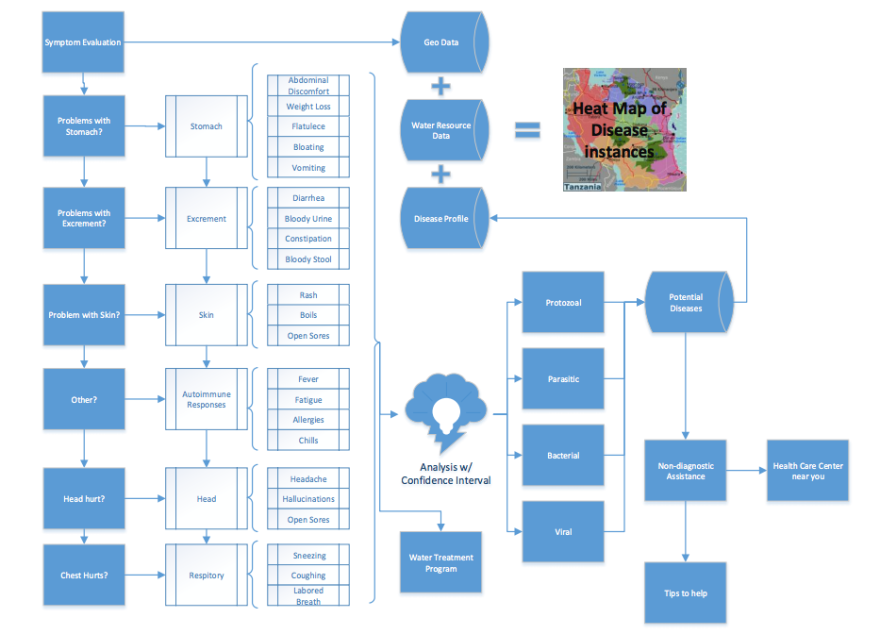Smartphones are now the norm in the U.S., and in Austin, brandishing a flip phone in most situations is the social equivalent to wearing a dunce cap while riding a Segway.
But in Africa and other developing countries, mobile-only networks dominate communications markets. In those places, a "brick", flip phone or “dumb” phone is a communication lifeline.
So this weekend, Austin-based group Developers Doing Development is asking tech communities in both Austin and Madison, Wisconsin to bring smartphone-level coding to the dumb phone, and create apps that will provide on-the-ground updates and vital information to developing countries.
A lack of mobile Internet connectivity has made efforts to track and combat Ebola outbreaks — as well as communicate health and safety information — in West Africa all the more difficult. Online efforts through Twitter and other outlets, to many, are useless because they can’t afford the connection costs.
In the U.S., 72 percent of mobile users have smartphones. Compare that to Sierra Leone, a country currently in the epicenter of the Ebola outbreak that’s killed nearly 5,000 people, which has about 57 percent of its population using a mobile-only phone and only 1.7 percent of users have Internet access.
So, Developers Doing Development’s hack-a-thon looks to bring apps that will provide information that cuts both ways — providing residents with health and safety information and authorities with outbreak tracking data to map its spread.
“We’re trying to use what people have to have the greatest effect on the greatest number of people,” says Michael Henderson, CEO and founder of Developers Doing Development. “Specifically because we’ve been blessed with the pervasive amount of mobile phone technology to use. So we are working to put together these apps and to bring together the technologists in Madison and in Austin to take these concepts to the next level.”
The idea of using dumb phone data to get real-time, on-the-ground surveillance has been used before. Swedish researchers monitoring the 2010 Haitian cholera outbreak used call-data records from about 2 million users to map the spread of the disease more accurately than authorities on the ground could. But similar efforts have fallen apart in West Africa due to regulatory and privacy concerns.
Developers Doing Development’s effort would partner with NGO's and health organizations to create an opt-in system: residents get a text, opt-in, and give relevant answers to questions as well as receive relevant information on anything from tainted water supplies to, in the worst case, Ebola outbreaks, as well as providing informational voicemails.
“We’re working with a dumb phone interface,” says Scott Akers, the group’s chief technical officer. “It’s very much a binary, yes-or-no, press ‘one’ for this and ‘two’ for this system, which means that there’s not much interface development that needs to be done. But there’s also a lot of logical information that needs to be gathered in an appropriate way.”

Akers says the apps would ask whether users are feeling specific symptoms, run those symptoms through a database of infectious diseases and provide treatment information. In the case of Ebola, the apps will provide a list of best practices in avoiding the spread of the disease. Specifically, Akers says, a list of best burial practices.
“One of the biggest issues with the spread of Ebola is that Western African burial practices involve a lot of kissing and touching of the body. It’s very affectionate,” he says. “But, at the same time, these people may not know that they could be catching this infectious virus, and changing those behaviors is really important if we’re going to stop it.”
The Centers for Disease Control estimates 50 to 70 percent of all new Ebola cases in West Africa are transmitted through contact with fluids during burials. The apps would also track casual contact among users, sending them a yes-or-no text asking them if they’ve come into contact with an Ebola-stricken neighbor or family member. That data would be cross-referenced with GPS data to show a heat map of affected areas in real-time.
This isn’t Developers Doing Development’s first go-round with a dumb phone emergency app. They’re in talks with the Tanzanian government and the country’s leading mobile provider, Vodacom, to build out emergency messaging services in the town of Morogoro. Until the Ebola outbreak, they were focused on producing a suite of clean water awareness apps in Africa, an issue they chose to act on after attending UT’s Young African Leaders Initiative conference earlier this year.
Henderson hopes the group’s partnership in Tanzania will allow the fruits of the hack-a-thon to get fast-tracked, allowing three or four apps to be produced in the next six months.
“This is not a pipe dream, this is not a bunch of folks coming together that are just optimistic,” Henderson says. “We are using our political backgrounds and tech backgrounds to make solid pathways for these programs once they’re created.”
The Developers Doing Development hack-a-thon runs Saturday through Sunday, and the winning participant will receive five passes to SXSW Interactive.





